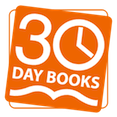What Resources Do You Need to Write a Book?
Unless you are working with a ghostwriter, a literary mentor, or a co-author, most of the hard work of writing your manuscript will ultimately fall onto your shoulders — right? Not exactly. Whether you are penning a novel or writing a work of non-fiction, your book will, of course, be uniquely yours. Your journey toward finishing your manuscript and (hopefully!) becoming a published author isn’t yours alone, though. Writing a book, or at least a good book, is a team effort.
What resources do you need to learn how to write a book? While that’s going to vary enormously, here are some practical tips that will matter to almost any author, regardless of the type of book they are working on.
It All Starts With You
The first resources you’ll need to start a book, struggle your way through all the way until the end, and ultimately get your book published or self-published, already lie within you. You need a great idea, a curious mind, and the tenacity it takes to finish your manuscript. You need self-discipline. You need confidence — if not in yourself as a whole, then at least in your book and the idea that it deserves to be read widely. You need to have studied what it takes to convey your story beautifully and coherently, or your non-fiction book with credibility and expertise, and you need commitment to keep perfecting your craft. More than anything, you need to figure out how to become a better writer.
Do you check all these boxes? Time to start filling the rest of your toolbox!
What Software and Tech Do You Need to Write a Book?
Some authors write most of their manuscripts in Microsoft Word, on Google Documents, or in LibreOffice. Although much more powerful book-writing software is now aspiring authors’ disposal, you, too, may make this choice. You’re still almost certainly going to rely on the internet to do a significant portion of your research, so you’ll need a reliable computer and internet connection as you write your book.
Wondering what software is available for writers today? At no cost to you, you can turn to:
- Evernote as a word processor and planning tool.
- Bibisco to plan your story.
- The Hemingway Editor, which can help you eliminate unfortunate word choices and sentence structures. A paid version is also available.
- FocusWriter, a helpful productivity tool for writers and ghostwriters.
Subscription services and paid software is also available to help you write your book, including Ulysses, Scrivener, and WriteItNow. Book-writing software can help aspiring authors make outlines, keep their random but brilliant ideas organized, polish their style, and eliminate spelling and grammatical errors. It can also often serve as collaborative editing software when you are ready to bring others onboard.
People: The Most Valuable Resource When Writing a Book
If you are writing a book with the end goal of publishing or self-publishing it and achieving financial success as well as literary recognition, people are an invaluable resource. You’re hoping for people to publish, buy, read, review, and recommend your work, after all. Some of the human resources to turn to while you are working on your manuscript are:
- Beta readers, people who are willing to both read your manuscript well before it’s published (and when it’s still more than a little rough around the edges), and offer honest, critical, feedback that will help you improve your book. Your beta readers can be people you know personally, as well as those you find online on dedicated platforms.
- Critique partners are other writers who offer feedback and suggestions from an insider’s point of view, usually in exchange for you doing the same for their work. They challenge you in a different way, and push you to reach new heights.
- A professional editor. Your book won’t truly be ready until a professional editor has picked it apart. Editors are an essential part of eliminating the weak points of your book, from weak plot points to rambling and first chapters that rely on tropes.
Every author is unique, but armed with these resources, you have a shot at creating a manuscript you are proud of — and one others will enjoy as much as you do.
